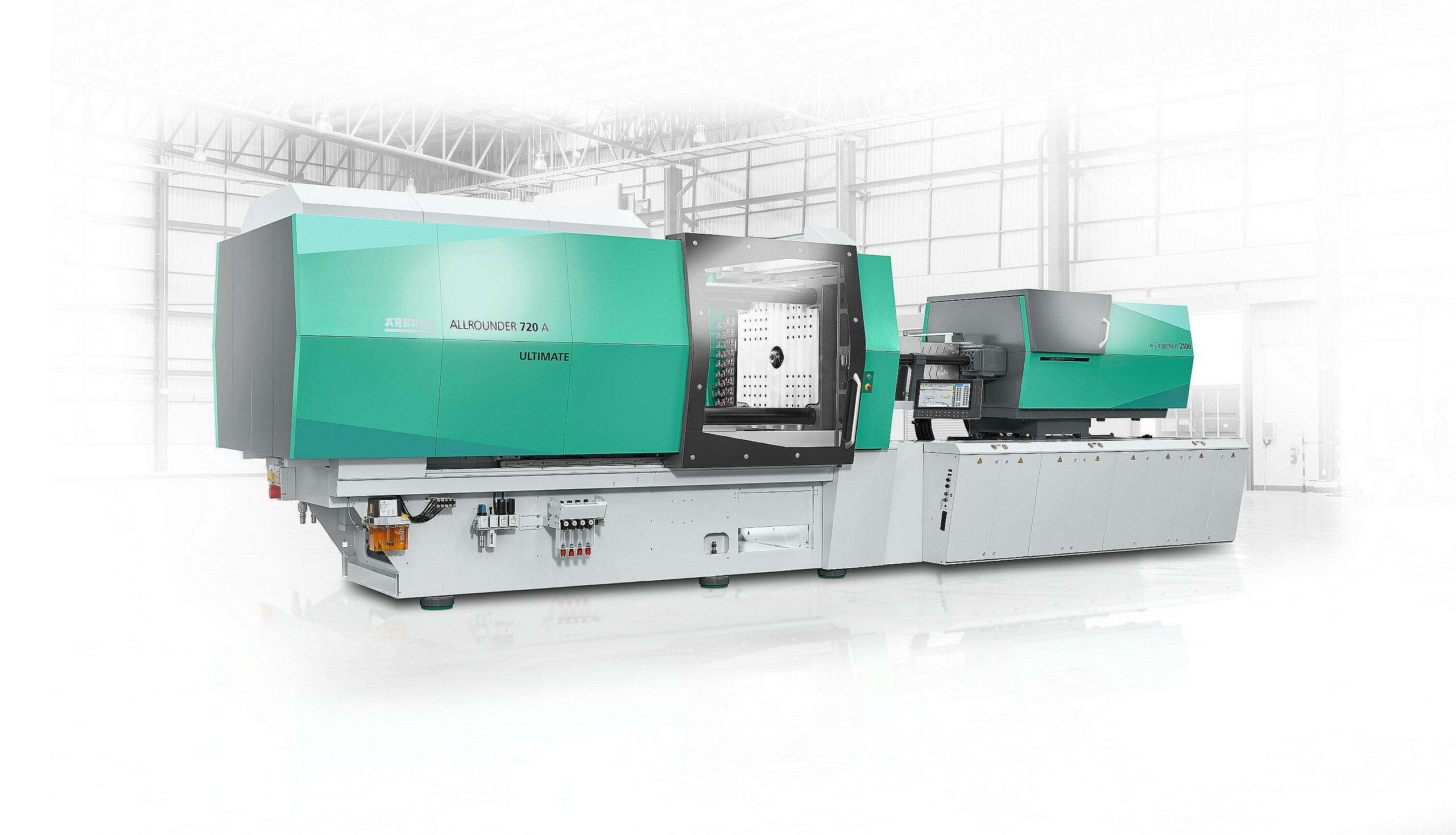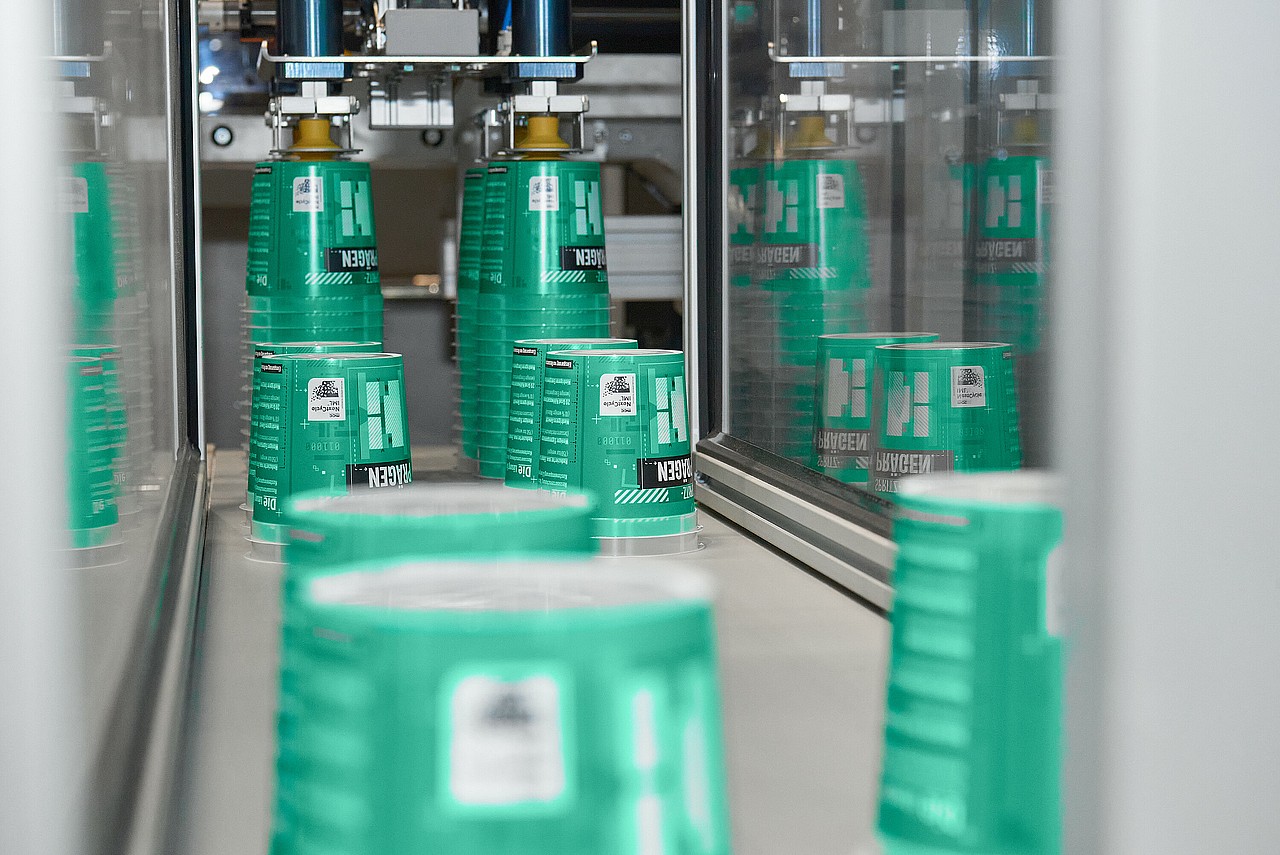IML cups only 0.37 millimeters thick
The exhibit uses a 4-cavity mold from Brink to produce thin-walled IML round cups from polypropylene (PP) using injection compression molding. The flowpath/wall thickness ratio is 380:1. For process monitoring, the mold is equipped with six high-resolution inductive position measuring and embossing sensors. Four molded parts, each weighing 10.4 grams and with a wall thickness of only 0.37 millimeters, are produced in a cycle time of 3.95 seconds. The plastic is biomass-balanced and ISCC-certified. Also integrated into the production cell is a side-entry robot from Brink that inserts the labels, removes the finished cups and stacks them on a conveyor belt.

